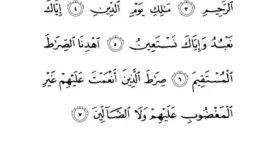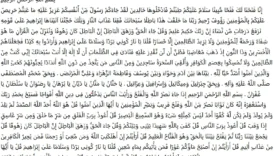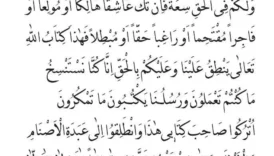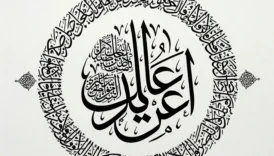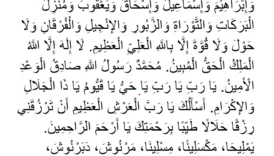The Laylat Al-qadr Supplication
Stay blessed. Seek mercy. Embrace the divine grace of Laylat al-Qadr. In this night, every sincere prayer matters. Experience tranquility. Yearn for spiritual elevation. Return to Allah with hope.
- The Laylat Al-qadr Supplication
- What Is Laylat Al-qadr
- The Significance Of Laylat Al-qadr Supplication
- The Supplication Taught By The Prophet
- Arabic Text
- Transliteration
- Meaning
- Why This Supplication Is So Important
- Preparing For The Night
- Spiritual And Physical Cleansing
- Timing And Focus
- Combining Prayer And Dua
- Additional Supplications And Acts Of Worship
- Surah Al-qadr: The Heart Of This Night
- Meaning (English)
- Cleansing The Heart Through Repentance
- A Night Of Transformation
- Cultivating Sincerity
- Final Word
- References
What Is Laylat Al-qadr
Laylat al-Qadr is the sacred night during which the Qur’an first began to be revealed, a night far greater in virtue than a thousand months (Tafsir At-tabari). The Prophet Muhammad (peace and blessings be upon him) encouraged believers to search for this night in the last ten days of Ramadan (Bukhari, Fadl Laylat Al-qadr). Many Muslims observe it especially on the 27th night of Ramadan, though the exact date remains uncertain.
This blessed occasion opens countless doors of mercy and forgiveness, urging the faithful to increase their devotions, focus on heartfelt supplications, and seek closeness to Allah. It is a time when hearts turn sincerely toward their Creator, fully trusting in His boundless generosity.
The Significance Of Laylat Al-qadr Supplication
Laylat al-Qadr is the pinnacle of spiritual renewal, a night filled with divine peace until dawn. Supplications offered during this time carry immense weight in the sight of Allah, drawing the servant nearer to forgiveness and countless blessings.
Narrations highlight that worship performed in this single night eclipses the deeds of a thousand months (Qur’an 97:3). The Prophet Muhammad (peace be upon him) proclaimed that the one who stands in prayer on this night, with unwavering faith and hope for reward, would have past misdeeds forgiven (Bukhari, Iman). Thus, a sincere supplication on Laylat al-Qadr becomes a gateway to divine pardon.
The Supplication Taught By The Prophet
Our mother, Lady Aisha (may Allah be pleased with her), once asked the Prophet (peace and blessings be upon him), “If I witness Laylat al-Qadr, which prayer should I recite?” In response, he taught her this concise yet profound dua (Tirmidhi):
اَللّٰهُمَّ اِنَّكَ عَفُوٌّ كَرِيـمٌ
تُحِبُّ الْعَفْوَ فَاعْفُ عَنِّي
Allahumma innaka ‘afuwwun kareemun
tuhibbul-‘afwa fa’fu ‘anni
“O Allah, surely You are ever-forgiving and generous;
You love to forgive, so forgive me.”
Arabic Text
اَللّٰهُمَّ اِنَّكَ عَفُوٌّ كَرِيـمٌ
تُحِبُّ الْعَفْوَ فَاعْفُ عَنِّي
Transliteration
Allahumma innaka ‘afuwwun kareemun
tuhibbul-‘afwa fa’fu ‘anni
Meaning
“O Allah, indeed You are Forgiving, Most Generous;
You love forgiveness; so forgive me.”
Why This Supplication Is So Important
Though concise, this dua holds a deep ocean of meaning. It calls upon Allah’s attributes of pardon (al-‘Afuw) and generosity (al-Karim). The servant, mindful of past mistakes, entrusts every fault to the One who delights in forgiving. Through these words, hearts become humble, yet hopeful, anticipating that the gates of mercy will open.
When recited with sincerity, it helps wash away regret and invites fresh beginnings. The night’s sanctity amplifies the effect of this prayer, offering believers an unmatched opportunity to reconcile with their Lord.
Preparing For The Night
Spiritual And Physical Cleansing
To greet Laylat al-Qadr in the best state, believers are encouraged to cleanse themselves both physically and spiritually. Performing ablution or taking a complete ritual bath (ghusl), wearing fresh attire, and ensuring a quiet space are simple yet powerful ways to deepen devotion.
Timing And Focus
While the exact date of Laylat al-Qadr is not certain, dedicating every one of the last ten nights of Ramadan to added prayer and supplication helps ensure it is not missed (Ibn Majah, Iqamat As-salah). A particularly precious time is the final third of the night, just before dawn, when hearts are most tranquil and distractions recede.
Combining Prayer And Dua
It is highly recommended to spend portions of the night in voluntary prayers. One may perform two, four, or more raka’ahs of nafl (supererogatory) prayers, concluding each set with heartfelt supplications. After concluding these prayers, turning to the Laylat al-Qadr supplication can further elevate one’s connection with Allah (Muslim, Salah).
Additional Supplications And Acts Of Worship
Although the Prophet’s recommended dua stands at the center of Laylat al-Qadr worship, believers often engage in various other devotions:
- Qur’an Recitation: Since the Qur’an’s descent began this night, reading it reverently draws believers closer to the core message of guidance.
- Istighfar (Seeking Forgiveness): Sincere pleas for pardon soften hearts, especially when repeated from the depths of the soul.
اَسْتَغْفِرُ اللّٰهَ الْعَظٖيمَ
اَلَّذِي لَا اِلٰهَ اِلَّا هُوَ
وَاَتُوبُ اِلَيْهِ
Astaghfirullah al-‘azim
alladhi la ilaha illa Hu
wa atubu ilayh
“I seek forgiveness from Almighty Allah,
there is no god but Him, and I turn to Him in repentance.”
- Sending Salawat Upon The Prophet: Praising and honoring the Messenger (peace be upon him) through salawat intensifies spiritual warmth. For instance:
اَللّٰهُمَّ صَلِّ عَلٰى مُحَمَّدٍ
وَعَلٰى آلِ مُحَمَّدٍ
Allahumma salli ‘ala Muhammad,
wa ‘ala ali Muhammad
“O Allah, bestow Your blessings upon Muhammad and the family of Muhammad.”
- Night Vigils: Spending the night in mindful reflection, quietly pondering one’s life, reading religious texts, and offering additional voluntary prayers.
- Charity (Sadaqah): Acts of generosity on such a blessed night hold multiplied rewards, helping those in need and purifying one’s wealth.
Surah Al-qadr: The Heart Of This Night
The significance of Laylat al-Qadr is perhaps best captured by Surah al-Qadr in the Qur’an. These five verses articulate the glory and the promise within this night:
بِسْمِ اللّٰهِ الرَّحْمٰنِ الرَّحِيمِ
اِنَّا اَنْزَلْنَاهُ فِي لَيْلَةِ الْقَدْرِ
وَمَا اَدْرٰيكَ مَا لَيْلَةُ الْقَدْرِ
لَيْلَةُ الْقَدْرِ خَيْرٌ مِّنْ اَلْفِ شَهْرٍ
تَنَزَّلُ الْمَلٰئِكَةُ وَالرُّوحُ فِيهَا بِاِذْنِ رَبِّهِمْ مِنْ كُلِّ اَمْرٍ
سَلَامٌ هِيَ حَتّٰى مَطْلَعِ الْفَجْرِ
Bismillahir-Rahmanir-Rahim
Inna anzalnahu fi laylatil-qadr
Wa ma adraka ma laylatul-qadr
Laylatul-qadri khayrun min alfi shahr
Tanazzalul-malaikatu warr-ruhu fiha bi-idhni rabbihim min kulli amr
Salamun hiya hatta matla’il-fajr
Meaning (English)
“In the name of Allah, the Most Compassionate, the Most Merciful.
Indeed, We sent (the Qur’an) down on the Night of Qadr.
And what will make you know what the Night of Qadr is?
The Night of Qadr is better than a thousand months.
The angels and the Spirit descend therein, by permission of their Lord, with every decree.
Peace it is until the emergence of dawn.”
By reflecting upon this chapter, believers recognize the gravity of a single night whose blessings surpass ordinary measure. Every moment spent in worship on Laylat al-Qadr resonates with the promise of multiplied reward.
Cleansing The Heart Through Repentance
Laylat al-Qadr is an especially opportune time for tawbah (repentance). Turning away from past sins and embracing a renewed commitment to faith fosters immense spiritual elevation. The Prophet Muhammad (peace be upon him) emphasized repentance as a potent means of purifying the heart and ridding it of burdens that hinder divine connection (Tirmidhi).
True repentance transcends mere words: it arises from regret over wrongdoing and a firm resolve never to repeat the same errors. Coming before Allah in humility and acknowledging one’s shortcomings fosters the hope of a better, more righteous path.
A Night Of Transformation
The essence of Laylat al-Qadr extends beyond a single evening. Ideally, the fervor and devotion found during these hours should permeate the rest of a believer’s life. Many experience a spiritual awakening that inspires lasting changes—abandoning harmful habits, engaging in more consistent prayer, and nurturing compassion.
Cultivating Sincerity
In all acts of worship—prayer, fasting, charity—the genuine intention behind them matters significantly. On Laylat al-Qadr, the heart that prays is as essential as the words being uttered. When the tongue utters “Ya Allah” and the heart genuinely echoes that yearning, the connection to divine mercy grows unshakable.
Sincerity (ikhlas) transforms even a few whispered words into a powerful plea that ascends to the heavens. People often share experiences of tears flowing unexpectedly during sujood (prostration) on Laylat al-Qadr, as the reality of standing before one’s Creator becomes profoundly tangible. It is in such moments that the night’s wonders truly unfold.
Final Word
Laylat al-Qadr stands as a luminous pillar within the blessed month of Ramadan. It calls every believer to deepen their devotion, to repent sincerely, and to seek divine forgiveness. The simple yet mighty supplication—“Allahumma innaka ‘afuwwun kareemun, tuhibbul-‘afwa fa’fu ‘anni”—encapsulates that heartfelt yearning for Allah’s grace.
May this night be a turning point, a call to higher aspiration in faith, and a source of enduring peace. As we raise our hands, we surrender our worries, regrets, and hopes to the One who loves to forgive. Through sincerity and devotion, we pray to leave this night renewed, carrying forward its radiant blessings.
References
- Abu Dawud, Salah
- Bukhari, Fadl Laylat Al-qadr
- Bukhari, Iman
- Ibn Majah, Iqamat As-salah
- Muslim, Salah
- Tafsir At-tabari
- Tirmidhi
